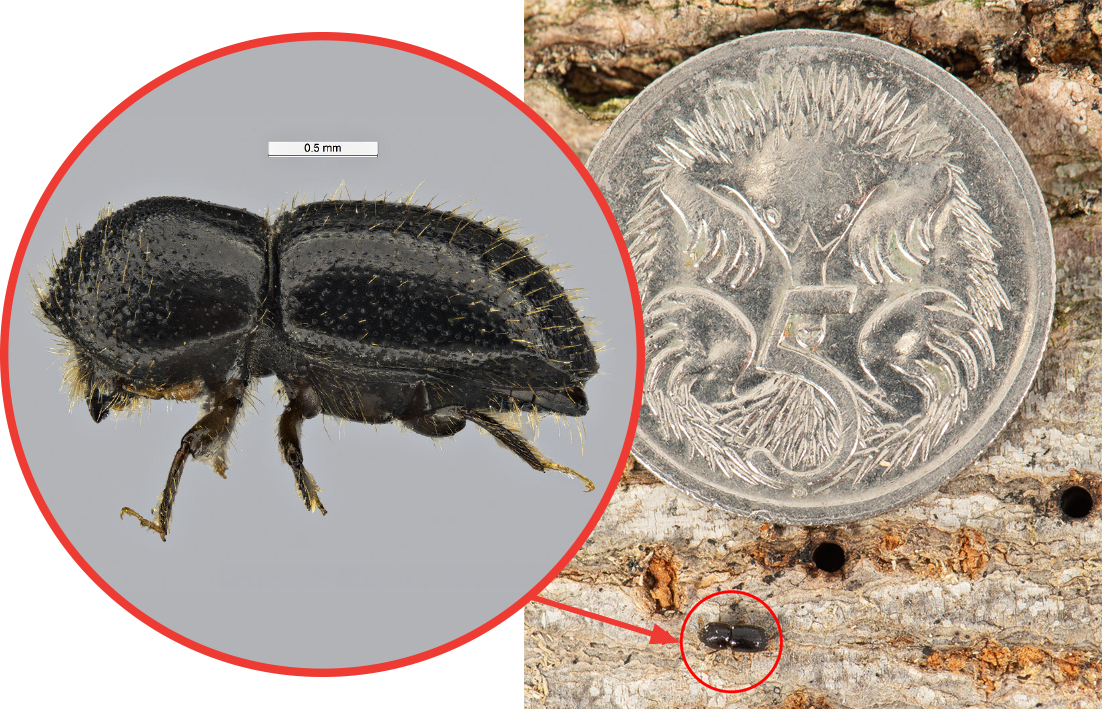
MORE than a hundred traps to help curtail the spread of the invasive polyphagous shot-hole borer beetle are currently deployed by the Department of Primary Industries and Regional Development (DPIRD) within the City of Swan with a further 28 traps in the City of Kalamunda.
Since the beetle was first detected in August 2021, it has now been found in more than 950 properties within the Perth metropolitan area, leading to the creation of a quarantine zone which encompasses 25 local government areas in the metropolitan region.
The non-native beetle attacks a wide range of plants by tunnelling into trunks, stems and branches, and also has a symbiotic relationship with a fusarium fungus, which it farms as a food source for itself and its larvae, according to DPIRD.
“There has been one detection of the beetle in the City of Swan (south-western area),” a DPIRD spokesperson said.
“There have been no detections in the City of Kalamunda.”
Within the City of Kalamunda, Forrestfield, Wattle Grove, High Wycombe, and Perth Airport are in the quarantine zone.
In the City of Swan, Midland, Hazelmere, and Middle Swan create the zone’s eastern border, with West Swan, Dayton and Bennett Springs creating the northern border, with the southwestern Swan suburbs of Guildford and Woodridge also included.
Within the zone, movement of untreated wood and plant material is restricted, with DPIRD stating that wood must be chipped into pieces that are 2.5cm in diameter before leaving it.
The DPIRD spokesperson said signs of beetle infestation included multiple entrance holes in tree or plant trunks (about the size of a ball point pen tip), sawdust or dieback.
Treated woods which are used for construction, packing, pallets or fencing and furniture are free to move in and out of the zone.
Acting biosecurity executive director Sonya Broughton called on the community to report any suspected beetle activity to DPIRD and to check their trees as well.
“The beetle can severely damage host trees once it takes hold with some species dying within two years of infestation,” she said.
“With no known treatments available, pruning and removing infected trees is currently the only way to prevent this serious pest from spreading to our other trees and putting urban canopy at risk.”